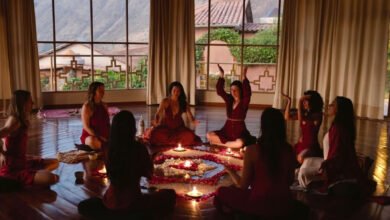Rev. Don Abram, Pride in the Pews

During Pride month, we see a lot of rhetoric of exclusion in parts of the Christian community. LGBTQ+ people can often find themselves in a space between their religious and LGBTQ+ identities. Rev. Don Abram has long been called to preach liberating gospel and create inclusive spaces, especially in the Black Church. Don founded Pride in the Pews three years ago with only “righteous rage and holy hope.” He collected 66 Black LGBTQ+ Christian stories and lived experiences to create timely theoretical models and frameworks for churches nationwide.
For this week’s episode of The State of Belief, Interfaith Alliance’s weekly radio show and podcast, host Rev. Paul Raushenbush is joined by Rev. Abram to discuss his work bridging the LGBT community and the Black Church. He sees the growth of Christian nationalism having a direct impact on anti-LGBT bigotry and other forms of divisiveness.
“I think the important thing to name and note is that you don’t have to be White to practice White Christian nationalism… And it’s the theology of otherization that fundamentally undergirds Christian nationalism, where there are quite clear and crystallize ideas of whose stories matter, whose lives matter, what communities matter. And if you fall outside of that narrow window – and it is narrow, let me be very clear – then you are a target. But the insidious thing about Christian nationalism is that it will use anyone willing to proclaim and project that ideology. And so you can be Black, you can be queer, you can be trans, you can be Hispanic, you can be White… I mean, anyone who’s willing to preach that message, they will be elevated in Christian nationalist circles.”
– Rev. Don Abram, queer public theologian and social innovator operating at the intersections of gender, sexuality, faith, and social change. He holds an M.Div from Harvard Divinity School and answered the call to ministry at age 14. He has combined his rigorous theological training and a heart for justice to deconstruct homophobic and transphobic theologies from the perspective of Black liberation theology.
Source link





